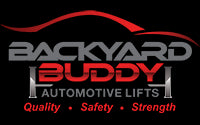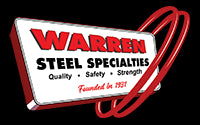Determining The Best Lift for You
Whether this is your first car lift or your tenth, this article will serve as a guide to help you determine the best lift for your needs. Topics will include the different types of lifts, how much it costs to own a lift, and how much space a lift requires.
Lift Types
There are multiple types of automotive lifts, the most common being the single-post, 2-post, and 4-post. Within this article, 2-post and 4-post lifts will be highlighted.
2-Post Lifts
2-post lifts can be found in both commercial and residential garages, serving everyone from mechanics to at-home wrench turners. Holding up to 12,000 lbs., these lifts have many of the same capabilities as a 4-post lift. These lifts are mainly used to conduct repairs on vehicles, due to the ease of access to the undercarriage of the vehicle. 2-post lifts have two different style options, floor-plate or overhead.
The floor-plate model is the most common and can be installed in smaller-sized garages, making it perfect for lower ceiling heights. An overhead model tends to provide more height clearance than a floor-plate model, but requires a taller ceiling height. Both styles have the same lifting capacities, features and functionalities.
View our 2-post lifts
4-Post Lifts
4-post lifts are the most common lift for the everyday homeowner and car enthusiast. With a weight capacity starting at 9,000 lbs., these lifts are perfect for both servicing and storing vehicles. Unlike the 2-post lifts, 4-post lifts have the capability to store vehicles long-term due to the vehicle being lifted by the tires versus the undercarriage.
View our 4-post lifts
Factors for Consideration
Now that you are familiar with both the 2-post and 4-post lifts, there are a few factors to consider when choosing the best lift to suit your needs.
Space Requirements
Knowing how much space each lift requires is important as both 2-post and 4-post lifts have different space specifications. As one would expect, a 2-post lift requires slightly less space, making them ideal for smaller garages. Always account for drive-thru and walkway clearance when measuring your space.
Vehicle Weight
Vehicles are not made to be as light as a feather, which is why vehicle lifts have a weight capacity. If your vehicle were to exceed the weight capacity, the lift may not function properly, causing damage to both the lift and vehicle. 4-post lifts from Advantage Lifts start at a capacity of 9,000 lbs., holding most vehicles including SUVs and larger trucks. 2-post lifts can easily lift and hold the average car and smaller trucks but have a weight capacity of 10K or 12K lbs.
Ceiling Height Requirements
Going together with space requirements, ceiling heights are important as they ensure there is enough room to allow the lift to be properly installed and used. See the chart below for an idea of how much ceiling height you would need for specific lifts.
AL-SC10 - 12' min
AL-SF10 - 9'6" min
AL-12C - 12' min
AL-12F - 10'6" min
ML-2000 - 9'6" min
DX-9000-HD - 9' min
DX-9000-XLT - 10'6" min
SS-11000-WD - 10'6" min
Classic (B-4P7CL) - 9' min
Classic Extra Tall (B-4P7XT) - 10'6" min
Work Force (B-4P8WF) - 10'6" min
Boat Trailer Lift (B-4P8BT) - 10'6" min
Big Buddy (B-4P8BB) - 10'6" min
Wide Buddy (B-4P8WB) - 10'6" min
B-SXS-10000 - 10'6" min
Cost of Owning a Lift
High-quality lifts do not always have to be expensive. Pricing, however, will vary depending on the type of lift you choose. 2-post lifts from Advantage Lifts range from $3,000 to $6,000, including shipping and installation costs. 4-post lifts are slightly higher priced with a wide range of $5,000 to $12,000 with shipping and installation. Additional accessories can be bought to accommodate the 4-post lifts, for an additional rate.
When it comes to choosing a car lift, take the time to decide what your needs are and how Advantage Lifts can best suit them. Check out our website for more information on our lifts and reach out to one of our Lift Experts with questions at 763-300-5730.








